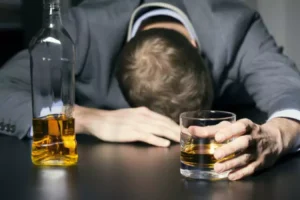
This not only affects your physical health but also your mental and emotional well-being. Plus, the guilt and shame that often accompany a relapse can be overwhelming and make it even more challenging to get back on track. Drinking after achieving sobriety can have some serious consequences, and it’s essential to be aware of them. First of all, it can lead to a relapse, where you find yourself trapped in the same cycle of addiction you worked so hard to break. Harm reduction recognizes that for some, it is either not necessary or not possible to quit drinking entirely.
What Happens to Your Body When You Stop Drinking?

At United Recovery Project, our holistic approach to addiction treatment centers around addressing and healing theunderlying issues at the root of addiction. Remember, you are an important part of the treatment team with enormous power to do good for your loved one. Recovery is lifelong, https://ecosoberhouse.com/ and a relapse can happen at any time, even after years of not drinking. If you start to think of yourself as a failure, you’re more likely to move into the next stage of relapse. If you can recognize the warning signs of each stage, you can take action to avoid a relapse.
Create a Relapse Prevention Plan
Accepting, embracing, and then distracting yourself from these feelings in a healthy way will help you fight the urge to drink. Our tailored treatment programs, including our Intensive Outpatient Program (IOP), are designed to help those in recovery maintain their sobriety and prevent relapse. Acknowledging and celebrating the hard work of recovery is helpful for keeping you motivated and reminding you why you took this brave step toward sobriety in the first place. Instead, focus on things, experiences, and activities that will support your new, healthy lifestyle.

What Are the Warning Signs of an Alcohol Relapse?
- Alcohol addiction is a continuous and treatable medical condition that involves your brain, genetics, and environment.
- This plan should be discussed with a certified clinician who has experience with alcohol abuse.
- “Overall, if an individual’s goal is to stop using substances, it is important to recognize that harmful substance use and abstinence exist on a continuum.
- Evidence-based addiction treatment uses the current and best research-based evidence to make informed decisions about your rehab care.
- With a slip-up, you might have a drink, but you quickly realize it’s the wrong path for you, and it doesn’t go further.
- Our IOP and clinical services are specifically designed to help clients combat alcohol addiction and reintegrate into society while avoiding triggers that could lead to relapse.
It’s crucial to be cautious and avoid situations where one might start drinking these substitutes, as they could potentially lead to negative consequences. A formal recovery plan gives you strategies for dealing with people or situations that could trigger relapses. If you are sober, but follow the same routine without making any changes in your life, it is easier to slip into old habits and behaviors. Be sure to avoid any routines that used to lead you to your unhealthy substance use. A significant part of avoiding relapse is understanding your external triggers.
How Long Does Alcohol Stay in Your System?
Each relapse episode can strengthen the person’s belief that sobriety is not possible for them. National Institute on Drug Abuse (NIDA) statistics find that 40 to 60 percent of people with a substance use disorder, including alcohol, relapse at least once. An early study by the NIAAA found that up to 90 percent of those with an alcohol use disorder relapsed at least once in the first four years after treatment. Alcoholism, more drinking again after sobriety formally known as Alcohol Use Disorder (AUD), is a medical condition characterized by an impaired ability to stop or control alcohol use despite adverse social, occupational, or health consequences. It encompasses a spectrum of behaviors ranging from binge drinking to physical dependence on alcohol. The earlier the signs of an alcohol relapse are recognized in yourself or someone you love, the sooner you can take action.
- This exploration has navigated through the biological, psychological, and social underpinnings of alcoholism, the controversial concept of controlled drinking, and the challenging dynamics of sobriety and relapse.
- Some individuals can do this on their own with community or peer support; however, others will require the help of providers through medically-supervised detoxification.
- If you’re not ready or willing to change those behaviors and thoughts, then treatment cannot do what it’s designed to do.
- Some clinicians will divide this stage of relapse into a lapse and then the actual relapse.
- Abstinence from alcohol has been proven to be the most effective way to maintain sobriety, especially for recovering alcoholics.
- The amazing thing about sobriety is how the body reacts to the new care.

That said, there are four general stages of recovery, as compiled by addiction expert Steven M. Melemis, MD. These stages can help prevent relapse and support people to live healthier, fuller lives. You may be hesitant to propose this topic to your therapist, your sponsor, or your friends in recovery for fear of judgment or even ridicule; however, there are no stupid questions when it comes to recovery. The more information you have, the easier it will be to find a path to sobriety.
Should I Go Back to Rehab if I Relapse?
- In many cases, the individual may even find himself or herself at a deeper level of addiction after relapsing.
- Cultivating the seven core attitudes of mindfulness – non-judging, patience, beginner’s mind, trust, non-striving, acceptance, and letting go – can further strengthen one’s ability to manage cravings and triggers.
- Support can also look like joining in-person and online support groups.
- Staying sober requires a person to analyze the reasons why they were using the substance, identify their personal triggers for relapse, and avoid falling into a pattern of use again.
- By exploring these alternatives, individuals can confidently navigate social situations and maintain their commitment to a sober life.


